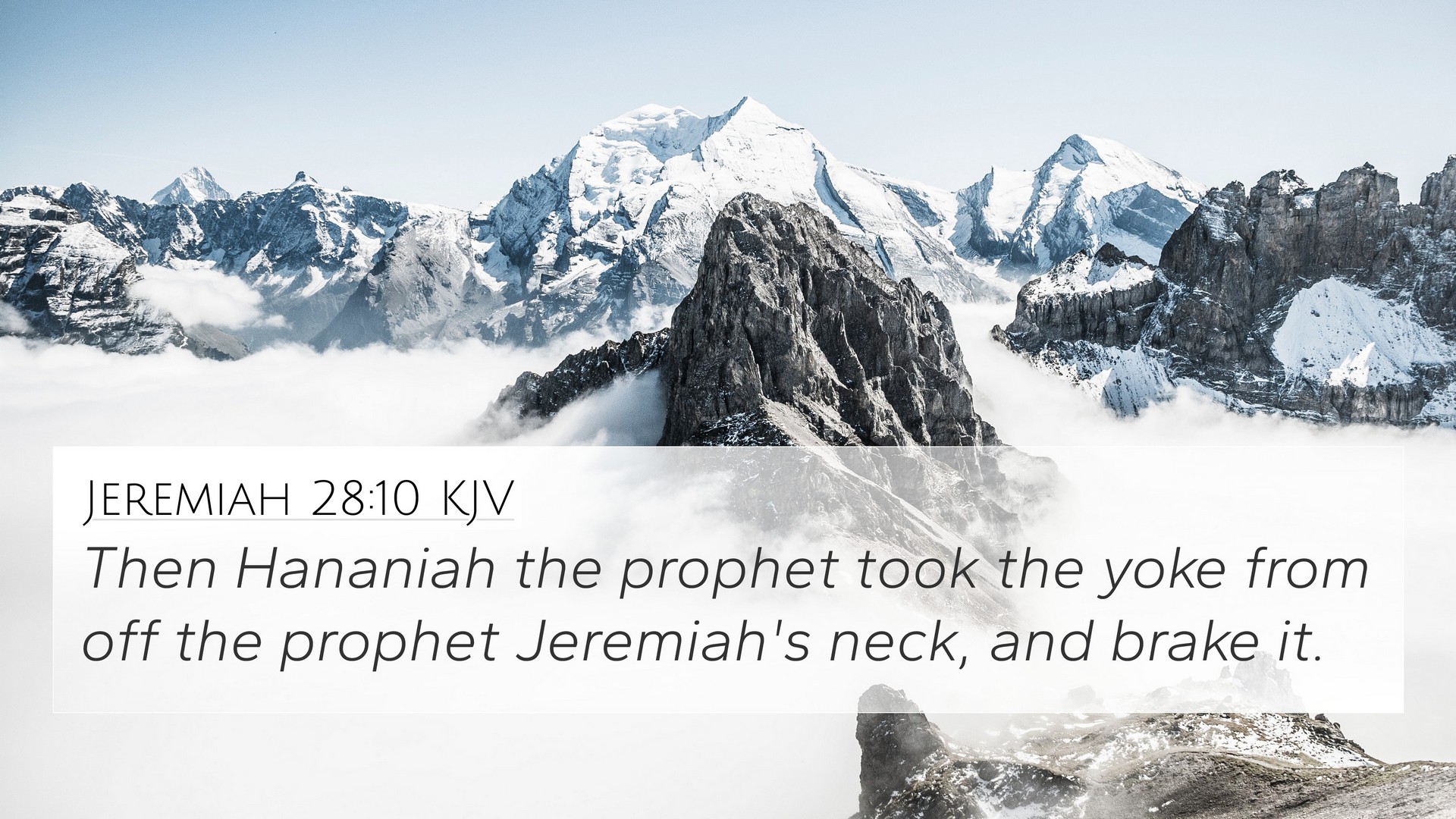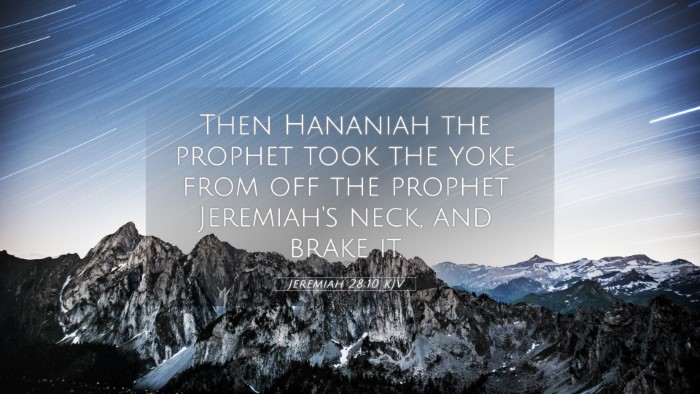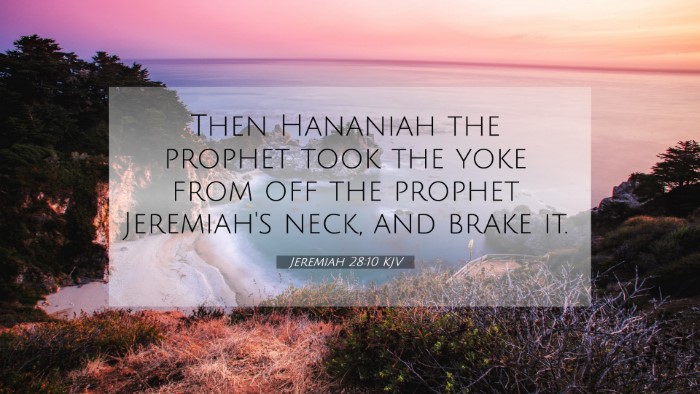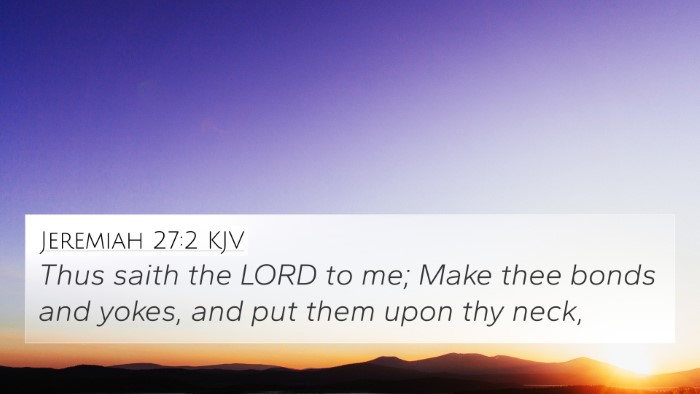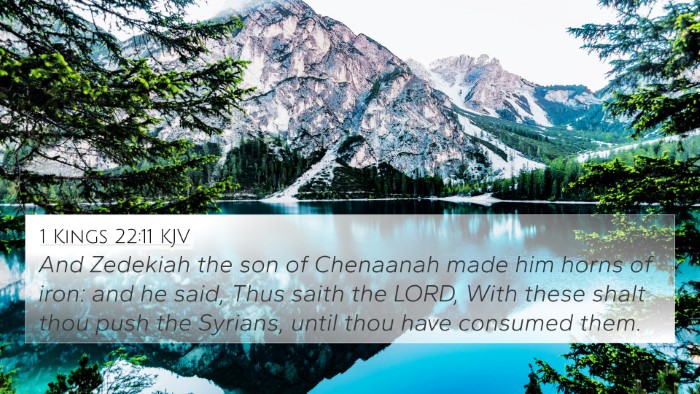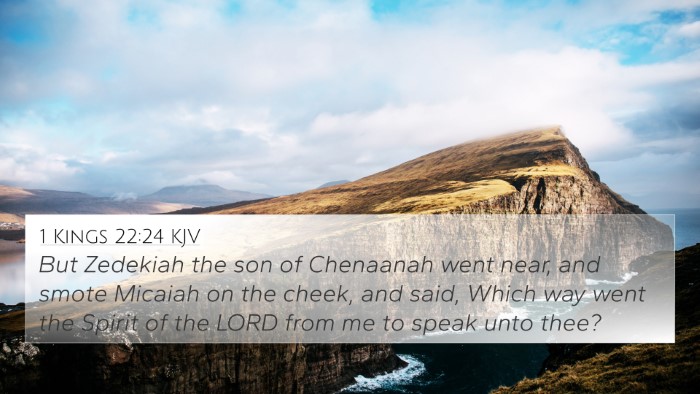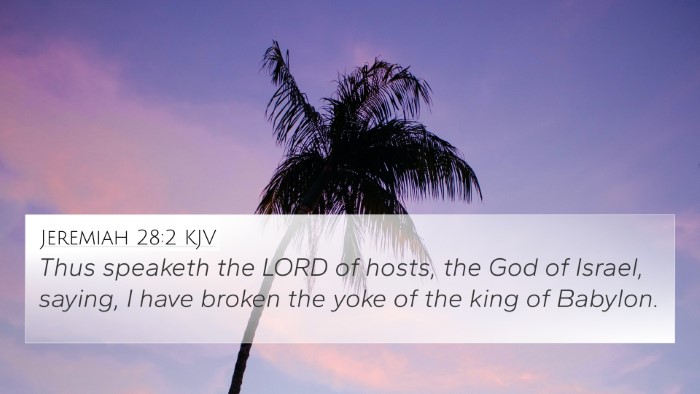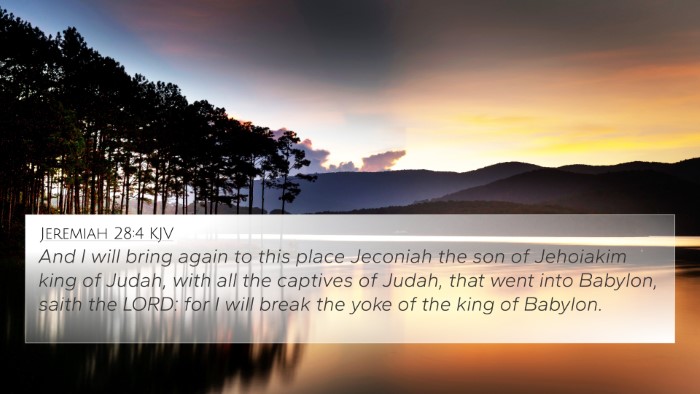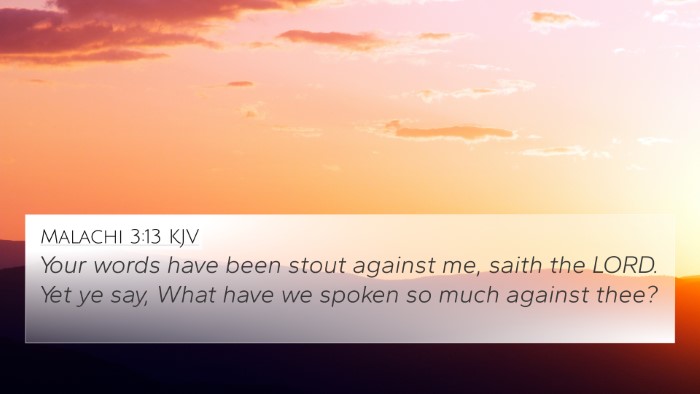Bible Verse Meaning: Jeremiah 28:10
Jeremiah 28:10: "Then Hananiah the prophet took the yoke from off the prophet Jeremiah's neck, and brake it."
In this passage, we witness a significant moment between the false prophet Hananiah and the prophet Jeremiah. This interaction highlights themes of prophecy, authority, and the tensions involved in delivering messages from God.
Contextual Background
Jeremiah was known as the weeping prophet, tasked with delivering messages of warning and impending judgment to the people of Judah. During a time when many false prophets were proclaiming peace and prosperity, Jeremiah stood out with a contrary message.
Meaning and Interpretation
This verse details Hananiah's symbolic act of breaking the yoke that Jeremiah had worn. The yoke represents the Babylonian oppression that God warned would come upon the nation due to their disobedience. By breaking the yoke, Hananiah attempted to contradict Jeremiah's prophetic words, asserting that there would be no such oppression.
Insights from Commentaries
- Matthew Henry: Henry notes that this act was not merely a physical action but a symbolic defiance against God's judgment. He emphasizes that Hananiah’s actions are indicative of the human tendency to reject painful truths in favor of comforting lies.
- Albert Barnes: Barnes highlights the importance of discerning true from false prophecy. He points out that the act of breaking the yoke signifies a denial of the judgments foretold by Jeremiah, which underscores the battle between genuine revelation and popular belief.
- Adam Clarke: Clarke views this action as a powerful statement against the authority of God's messenger. He stresses the dangers posed by false prophets who promise peace where there is none and caution the reader about the consequences of misleading messages.
Cross-References
This verse finds connections and parallels with several other Biblical texts:
- Jeremiah 27:2-12: This passage discusses the yoke of Babylon, establishing the context for the message Jeremiah was called to deliver.
- Deuteronomy 18:22: This verse provides a criterion for identifying false prophets, connecting the concept of prophetic truth to the actions seen in Jeremiah 28:10.
- Isaiah 30:10: Here, the people desire to hear smooth things and reject the truth, a theme echoed in Hananiah’s response to Jeremiah.
- 2 Timothy 4:3-4: Paul warns that in later times people will gather teachers who say what they want to hear, paralleling the situation in Jeremiah’s time with Hananiah.
- Ezekiel 13:10-16: This passage addresses the prophets who speak falsely and promote peace, aligning with the consequences of Hananiah's misleading message.
- 1 John 4:1: This verse cautions believers to test the spirits to discern truth, applicable to the contest of prophecy in Jeremiah’s time.
- Matthew 7:15: Jesus warns about false prophets, providing insight into the nature of spiritual deception similar to that exhibited by Hananiah.
Thematic Connections
Jeremiah 28:10 stands as a powerful illustration of:
- The conflict between truth and deception: This theme is prevalent throughout scripture and serves as a reminder to seek truth through the lens of God’s Word.
- The importance of discernment: Believers are called to discern between true and false teachings, especially in times of distress and confusion.
- God's sovereignty over nations: The prophetic warnings remind us that God remains in control and will fulfill His purposes, regardless of human opposition.
Applications for Today
This verse challenges us to consider:
- How do we respond to messages that contradict our desires?
- Are we attentive to the voices we listen to in our spiritual walk?
- Do we seek the truth diligently, even when it is uncomfortable?
Conclusion
Jeremiah 28:10 serves as a crucial reminder of the importance of adhering to God's truth in the midst of conflicting messages. By understanding the dynamics present in this verse, we can better equip ourselves in our spiritual journeys and encourage others to pursue the infinite wisdom found in the scriptures.
